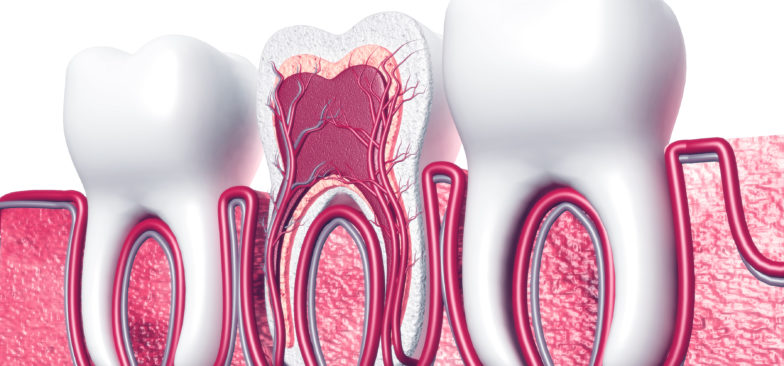You had impacted wisdom teeth, and your dentist recommended that you remove it to prevent future complications. Finally, you decided to go ahead and follow your dentist’s recommendation and undertook a procedure to remove it. However, during recovery, you experience increased pain on the area where the tooth was removed as well as other parts of your mouth.
You start thinking that the process wasn’t worth in the first place and decide to visit the dentist for further examination. It is determined that you sustained an injury of the nerve a condition known as paresthesia. If you’re in such a situation, worry not, this article will discuss how to heal nerve damage caused by wisdom teeth removal as well as some of the symptoms you should be on the watch out for.

What is Paresthesia?
This is a postoperative procedure that is, in most cases associated with the removal of wisdom teeth. The main cause of the condition is nerve injury during the removal process. It involves an instant when during wisdom teeth removal process, the nerve lying next to the area receives some type of injury. The nerve may be crushed, bruised, or irritated.
Symptoms of Paresthesia
In most cases, the nerve damaged cannot be identified during the procedure. However, the patient may experience some postoperative signs and symptoms that indicate damage to the nerves. Here are some signs and symptoms that your nerve may have been damaged during wisdom teeth removal.
-Loss of Sensation
The patient may experience diminished, altered, or even total loss of sensation.
-One or More Sensation May be Affected
There is an instance where instead of total sensation, one or more sensations may be affected. These may include pain, touch, temperature, or taste.
-Affect Speech, Chewing or Cause Drooling
The nerve damage may also affect a patient’s ability to chew or speech. It may also interfere with a person’s ability to play a musical instrument, especially one that requires the use of mouth to operate.
-Persistent Numbness, Tingling or Pins and Needles Effect
Some people may experience persistent numbness in the area where the wisdom tooth was removed. The feeling may also be tingling or have pins and needle effect. These are feeling that one may experience during anaesthesia application.
How to Heal Paresthesia
In most cases, symptoms associated with paresthesia will ease with time through following normal wisdom teeth removal aftercare measures. This happens to about 90% of the cases. However, if the symptoms continue, different treatment options can be considered.
-Medication
Since a damaged nerve can result in so much pain, certain types of medication may help ease the pain. They include antiepileptic, analgesics, and antidepressants.
-Laser Treatment
The dentist may use a low-level laser treatment to radiate the area where wisdom teeth were removed.
-Therapy
Various therapies may be used to heal nerve damage. They include cognitive behavioural therapy, biofeedback, and acupuncture.
-Surgery
If the nerve was severely injured, it would require the services of a dental surgeon to reconnect the two ends. However, a very small percentage of cases require dental surgery.
Bottom Line
Wisdom teeth removal is a complicated procedure that requires the services of an expert. Our dentist at Melbourne is experienced and well trained to handle such procedures. Contact us today or schedule an appointment with us for quality wisdom teeth removal services.

